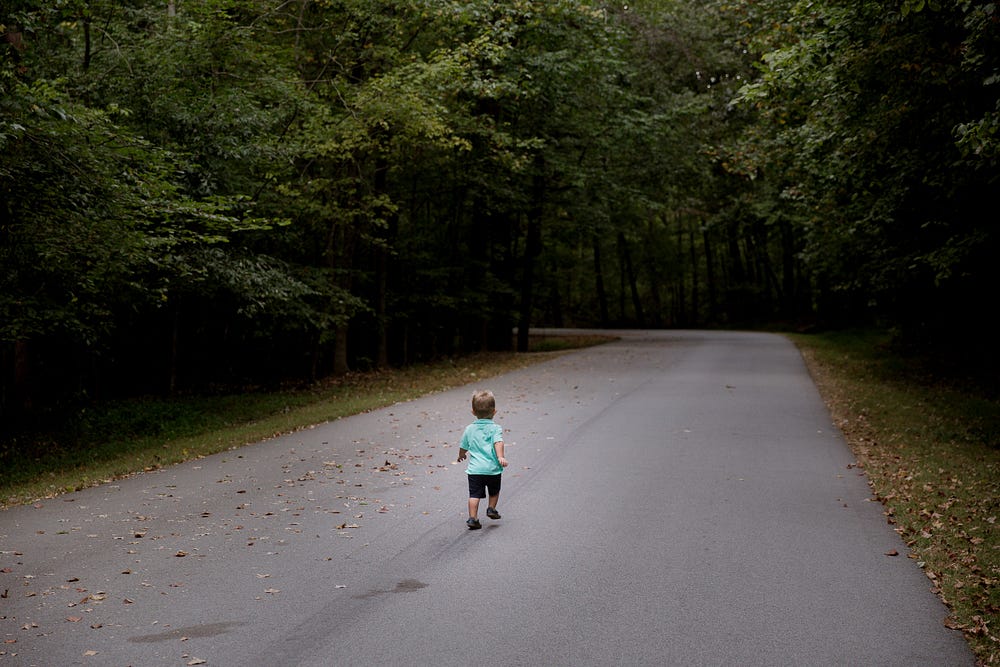Our cave-dwelling ancestors had it much easier than we do.
Their problems and solutions were clear. If their family was hungry, they knew they needed to hunt for food. If they succeeded and ate a fulfilling meal, they were happy and satisfied for the day. End of story.
We, on the other hand, have much more complicated struggles. Many of us in America don’t know what it’s like to literally go hungry or have to fight for food and shelter. And since our brains are wired to solve problems, we end up facing dumb problems.
Rather than making an easy instinctual choice to fight for food instead of go hungry, we spend our time deciding which college we should spend our parents’ trust-fund money on, or which expensive toy we want for Christmas.
The choice to hunt for food is motivated by necessity. There is a self-evident purpose behind it — to survive. It produces a test that demands strength and discipline.
Many of the problems we have now don’t come with a binary answer and solving them doesn’t require any real test of our abilities. No wonder we grow up with a foggy sense of purpose and no clue what to do about it.
I never knew exactly what I wanted to do with my life. Hell, I still don’t. But I’m a lot closer to figuring it out than I was yesterday. And I’ll be closer still tomorrow.
In the 4 years after I dropped out of college, I ran a painting business, started (and failed) multiple businesses, wrote a book, launched a cross-country RV tour, worked for Praxis, and did freelance videography.
At face value, my career trajectory looks disjointed, scrambled and without purpose. But each part of my past is a puzzle piece that has developed my unique skills and abilities. The purpose behind it lies in the way I chose to act when I made decisions each day. The puzzle pieces fit together perfectly because I am the one holding them together.
Your life will unfold unexpectedly. Let it.
Instead of frantically searching for your One True Purpose, make small choices each day that align with how you want to act. Jump onto good opportunities and don’t be afraid to let go of old ones.
Here’s how.
Be a kid.
Children are driven by pure curiosity because they haven’t been normalized by society. They haven’t been taught to concern themselves with how what they do appears to others. They are completely self-absorbed in their quest to find answers to their questions.

They haven’t yet learned what they are supposed to do or how they are supposed to act, so they simply act. They are not burdened by the opinions of others. They do not worry about the consequences of their actions. They are naively free to pursue their own selfish curiosity.
Can I climb that tree? What is that little bug on the ground? How many caterpillars can I catch at one time?
You still ask yourself these questions, though their context has changed.
Can I get my dream job? Can I be my own boss? Can I grow a company to $1M? Can I make a blockbuster film? Can I write a hit song? Can I achieve total consciousness?
Pick a question you’re curious about and spend time finding the answer. It doesn’t matter if it makes you money, if you’re terrible at it, or if you don’t know where to start. Be naive and let your childlike curiosity drive you as far as it may, past stability, beyond certainty, and into irresponsibility. I learned about being irresponsibly curious from T.K. Coleman.
Be an adult.
In Six Pillars of Self-Esteem, Nathaniel Branden writes, “I came to tell you that no one is coming.” Once you accept the reality that nobody is coming to save you, your psychology will shift and you will begin to take full responsibility for yourself.
From basic sustenance to your larger-than-life purpose, everything in your life starts and stops with you. If you want to reach your larger-than-life purpose, focus first on purposefully creating basic sustenance for yourself. This is what it means to be an adult.
It’s imperative to be curious and follow your dreams, but if you do this without developing a solid foundation from which to selectively evolve, you will start over completely every time you try something new.
Build a foundation first. Start by doing what you need to do to survive. Just like your cave-dwelling ancestors did, find a way to provide yourself with food and shelter. If this means moving away from your parents’ house and getting a crappy job to pay rent, do that, even if it’s something you hate to do.
You will develop a clear sense of purpose — to become self-sufficient — and you will develop a sense of confidence. Just like how the caveman feels satisfied when he brings food home for his family, you will feel satisfied that you’ve created some personal and financial stability for yourself.
When Casey Neistat was 17 years old, he took the only job he could find as a dishwasher. In one of his videos he advises young people to get a job doing something they hate because when you’re working a job you hate, you’ll spend the entire time thinking about what you’d rather be doing.
While you are building stability like an adult, you will be lighting the fire of your inner childlike curiosity which will guide you towards your next opportunity.
Nobody can give you purpose. You have to create it for yourself. Assume the responsibility for creating your own purpose. If it doesn’t exist now, don’t expect it to magically appear one day. Create it day by day.
Help someone.
No matter how pathetic you think your set of skills and accomplishments are, you have value inside you waiting to be put to work. You are capable of working and solving problems, and one of the best ways to live purposefully each day is to end that day having solved a real problem.
If you want to know why society seems to shun you, or why you seem to get no respect, it’s because society is full of people who need things. They need houses built, they need food to eat, they need entertainment, they need fulfilling sexual relationships. You arrived at the scene of that emergency, holding your pocket knife, by virtue of your birth — the moment you came into the world, you became part of a system designed purely to see to people’s needs.
(Quote from this article: http://www.cracked.com/blog/6-harsh-truths-that-will-make-you-better-person/)
The world is full of problems. People need things fixed. Laundry and dishes need to be done, trash needs to be taken out, businesses need to be turned around, and the entire geopolitical system has some serious kinks in it.

Start inside your sphere of influence and fix something you know you can fix. Don’t worry about being paid for it, only focus genuinely helping another person solve their problem. You should be able to do this in your spare time if you follow the previous piece of advice.
Dr Jordan B Peterson famously gives this advice by telling young people to clean their room before criticizing anything outside their sphere of influence.
When you solve a small problem, you develop the confidence to take on a slightly larger problem. When you solve a problem for somebody else, they will want you to solve more problems for them. If you keep solving problems, eventually you will create an opportunity to earn income doing it.
Don’t search so hard for your One True Purpose. Just make purposeful decisions each day. Remember to be an adult, don’t lose your sense of childlike curiosity, and use your time to help people solve problems.
(Featured photo by Jake Sloop on Unsplash)